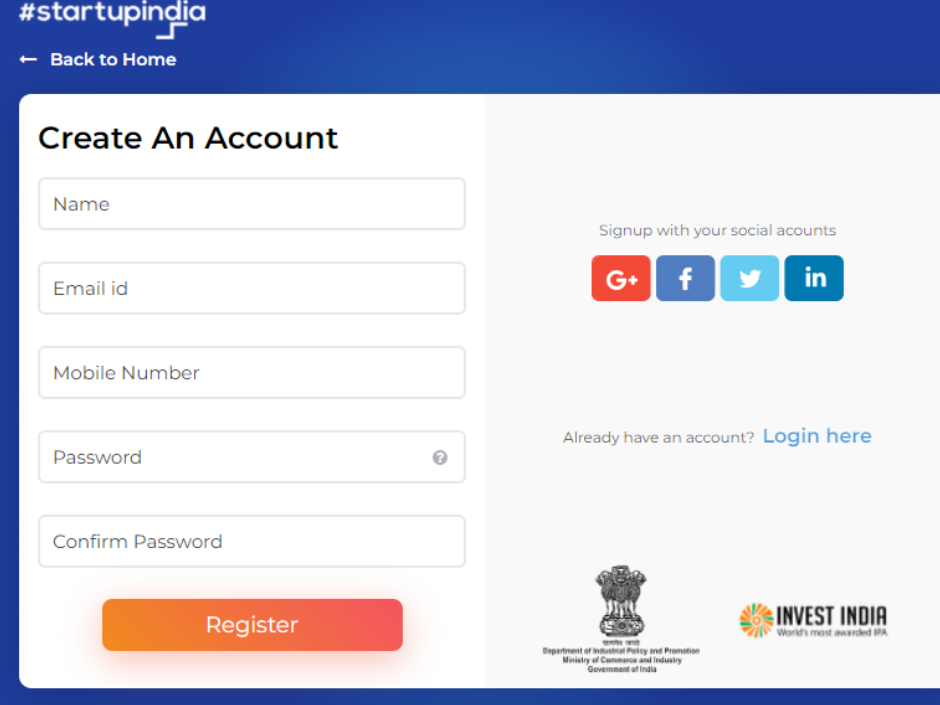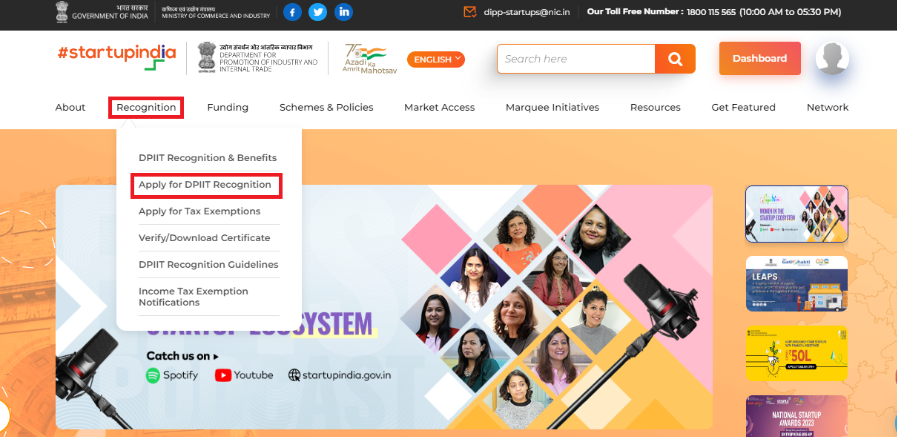Hello, future entrepreneur!
Dreaming of launching your own business in India? Learn how to Register a startup in India and explore the benefits of the Startup India initiative. Discover what qualifies as a startup and why this program is a game-changer for entrepreneurs aiming for growth and innovation.
What is a Startup According to Startup India?
The term “startup” isn’t just about a young business. According to the Startup India initiative a registered startup in India must be :
-
- Age of the Business: The entity should not be older than 10 years from its date of incorporation.
-
- Type of Business: It must be registered as a Private Limited Company, Limited Liability Partnership (LLP), or a Partnership Firm.
-
- Revenue Cap: The annual turnover must not exceed ₹100 crore in any of the financial years.
-
- Purpose: The registered startup should aim to innovate, develop, or improve products, processes, or services. It can also be a scalable business model with high potential for employment or wealth creation.
So, if your business checks these boxes, congratulations—you’re a startup!
What is Startup India?
Launched in 2016, Startup India is a flagship initiative by the Government of India to promote innovation and entrepreneurship. It offers startups a host of benefits like tax exemptions, funding opportunities, and easier compliance. The program aims to create a robust ecosystem for startups to flourish while reducing the barriers that entrepreneurs often face.
Now that we’ve set the stage, let’s get into the steps to register your startup in India.
Registration Process
Step 1: Incorporate Your Business
Before you can register as a startup, you need to legally incorporate your business. This could be as a Private Limited Company, Partnership Firm, or Limited Liability Partnership (LLP).
-
- Private Limited Company/LLP: File the registration application with the Registrar of Companies (ROC) of your region. Submit the required documents, pay the fees, and obtain your Certificate of Incorporation.
-
- Partnership Firm: Register with the Registrar of Firms by submitting your partnership deed, relevant documents, and fees. This foundational step establishes your business entity and prepares you for startup registration.

Step 2: Register on Startup India
The next step is to register your business on the Startup India platform, a government initiative designed to promote entrepreneurship.
Visit the Startup India Website: Go to Startup India and click on ‘Register’.
Create Your Profile: Provide your name, email ID, mobile number, and password. Verify your email via the OTP sent.
Fill in Startup Details: Include your business logo, funding status (bootstrapped or funded), and the stage of your startup (ideation, validation, early traction, or scaling).
Once registered, your profile allows access to learning resources, mentorship programs, funding opportunities, and more.
Step 3: Apply for DPIIT Recognition

Recognition from the Department for Promotion of Industry and Internal Trade (DPIIT) is crucial for accessing benefits like tax exemptions and government incentives.
-
- Log in to your Startup India profile and navigate to the ‘Recognition’ tab.
- Click ‘Apply for DPIIT Recognition’ to access the application form.
- Fill in the form with details like:
-
- Entity information
- Office address
- Authorized representative details
- Directors/partners details
- Description of startup activities
Additionally, answer the following:
-
- What problem does your startup solve?
-
- How does your solution address the problem?
-
- What makes your solution unique?
-
- How does your startup generate revenue?

Step 4: Approval and Recognition Certificate
After submitting the DPIIT application:
-
- Your startup will be reviewed, which typically takes 3-4 days.
-
- Once approved, the status will reflect as ‘Approved’ on your dashboard.
-
- Download the Startup India Certificate of Recognition and note your unique recognition number.
Step 5: Explore Other Areas
With your startup officially recognized, you can focus on leveraging additional benefits:
-
- Patents, Trademarks, and Design Registration: Avail up to an 80% reduction in fees for patent applications through government-appointed facilitators.
-
- Funding Support: Apply for schemes like the Startup India Seed Fund Scheme (SISFS) to access financial assistance. The government has allocated Rs. 945 crore to help startups over four years.
-
- Self-Certification: Simplify compliance under six labor laws and three environment laws for up to five years, reducing regulatory burden.
-
- Tax Exemption: Eligible startups can apply for income tax exemption for three consecutive years and exemption on investments above fair market value.
Step 6: Keep Innovating and Growing
Once your startup is recognized, continue innovating and scaling your business. Utilize mentorship programs, connect with investors, and explore market opportunities to turn your entrepreneurial dreams into reality.
Registering your startup with Startup India is a strategic move that opens doors to significant benefits, helping you focus on building a successful and impactful business.
Get started today and make your mark on the entrepreneurial landscape!
For more such blogs visit: https://startupshiksha.in/



Pingback:Startup Funding Options Simplified: From Pre-Seed to Scaling Up